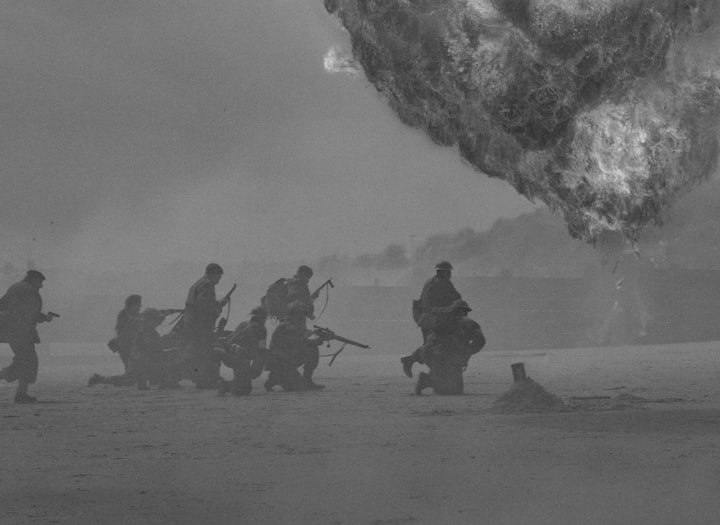Understanding World War III
Causes and Consequences

Introduction:
World War III (WWIII) is a hypothetical global conflict that many experts believe could potentially occur in the future. The possibility of WWIII has been a topic of discussion among political scientists, military strategists, and international relations experts for decades. In this essay, we will explore the potential causes and consequences of WWIII, with a focus on the various factors that could lead to the outbreak of such a catastrophic event.
I. Historical Context of World Wars
- Overview of World War I and World War II
- Factors that led to the outbreak of these wars
- Lessons learned from these wars
II. Theoretical Frameworks for Understanding World War III
- Realism: International System and power politics
- Constructivism: Role of Identity, norms, and ideas in shaping international relations
- Liberalism: Emphasis on cooperation, interdependence, and global governance
III. Potential Triggers for World War III
- Territorial disputes and geopolitical rivalries
- Nuclear proliferation and the arms race
- Cyber warfare and technological threats
- Climate change and environmental degradation
IV. Consequences of World War III
- Human toll: Deaths, injuries, and displacement of millions of people
- Economic impact: Destruction of infrastructure, disruption of global trade and commerce
- Political implications: Shifts in global power dynamics, erosion of democracy and human rights
- Environmental impact: Nuclear fallout, ecological destruction, and climate change
V. Preventing World War III
- Diplomacy and dialogue: Engaging in meaningful negotiations and conflict resolution
- International institutions: Strengthening the role of the United Nations and other global organizations
- Nuclear disarmament: Reducing and eventually eliminating nuclear weapons
- Environmental protection: Addressing the root causes of climate change and promoting sustainable development
VI. Potential Scenarios for World War III
- Direct military conflict between major powers
- Proxy wars and regional conflicts that escalate into global conflicts
- Cyber warfare and attacks on critical infrastructure
- Terrorist attacks and unconventional warfare
VII. Role of Technology in World War III
- Advancements in artificial intelligence, robotics, and autonomous weapons
- Use of drones and unmanned vehicles in warfare
- Role of social media and Propaganda in shaping public opinion and Perceptions of conflicts
- Cybersecurity and information warfare
VIII. Global Responses to World War III
- Military alliances and collective defense agreements
- Economic sanctions and diplomatic pressure
- Humanitarian aid and peacekeeping missions
- International criminal justice and accountability mechanisms
IX. Lessons from Previous Conflicts and Disputes
- Diplomatic efforts to resolve crises, such as the Cuban Missile Crisis
- Successful disarmament initiatives, such as the Iran nuclear deal
- The role of international institutions, such as the International Criminal Court and the International Atomic Energy Agency
- The importance of preventing conflicts before they escalate, through early warning systems and preventative diplomacy
X. Ethical Considerations in World War III
- The moral and ethical implications of using advanced technologies in warfare
- The responsibility of military leaders and policymakers is to protect civilian populations and minimize harm
- The importance of promoting human rights and protecting vulnerable populations during conflicts
- The need for accountability and justice in the aftermath of conflicts, including efforts to prosecute war crimes and crimes against humanity
Conclusion:
In conclusion, the prospect of World War III is a sobering reminder of the ongoing challenges we face in achieving lasting peace and stability in our world. However, it is important to recognize that such a conflict is not inevitable and that there are steps we can take to reduce the risks and prevent escalation.
First and foremost, diplomatic efforts must be prioritized, and international institutions and mechanisms must be strengthened to promote a peaceful resolution of conflicts and disputes. It is also essential to promote transparency and trust-building measures between major powers, including greater dialogue and cooperation on issues such as arms control and cybersecurity.
In addition, we must be mindful of the ethical implications of advanced technologies in warfare, and ensure that military actions prioritize the protection of civilian populations and the minimization of harm. Efforts to promote human rights and accountability in the aftermath of conflicts are also critical in building a more just and peaceful world.
Ultimately, the goal of preventing World War III requires a commitment to values such as empathy, cooperation, and mutual respect, and a recognition of our shared humanity and interconnectedness. By working together towards a more peaceful and equitable world, we can build a future that is not defined by conflict and violence, but rather by compassion and cooperation.
To achieve this goal, individuals and governments must prioritize investments in education, research, and cross-cultural exchange programs that foster greater understanding and collaboration between people of different backgrounds and cultures. This includes initiatives to promote interfaith dialogue and cultural exchange programs that help to build bridges of understanding and foster a sense of shared humanity.
In addition, efforts to address the root causes of conflict, such as poverty, inequality, and environmental degradation, are critical in reducing the risks of future conflicts. This requires a commitment to promoting sustainable development and inclusive economic growth, as well as investment in measures to address climate change and other environmental challenges.
Finally, we must recognize that preventing World War III is not a task that can be achieved by any one country or individual alone. Rather, it requires a shared commitment and collective action by all members of the global community, working towards a shared vision of a more peaceful and just world.
In conclusion, while the prospect of World War III is a daunting one, it is important to remember that we have the power to shape our future and prevent such a conflict from occurring. By prioritizing diplomacy, investing in education and research, addressing the root causes of conflict, and promoting shared values of empathy, cooperation, and mutual respect, we can build a future that is defined by peace and prosperity, rather than conflict and violence.
About the Creator
Ashok kumar
Amateur storyteller, you can expect me from all genres and also All sorts of stories: some funny, some sad, some a little motivational all of them told from the heart.
Thank you all for your support.






Comments
There are no comments for this story
Be the first to respond and start the conversation.